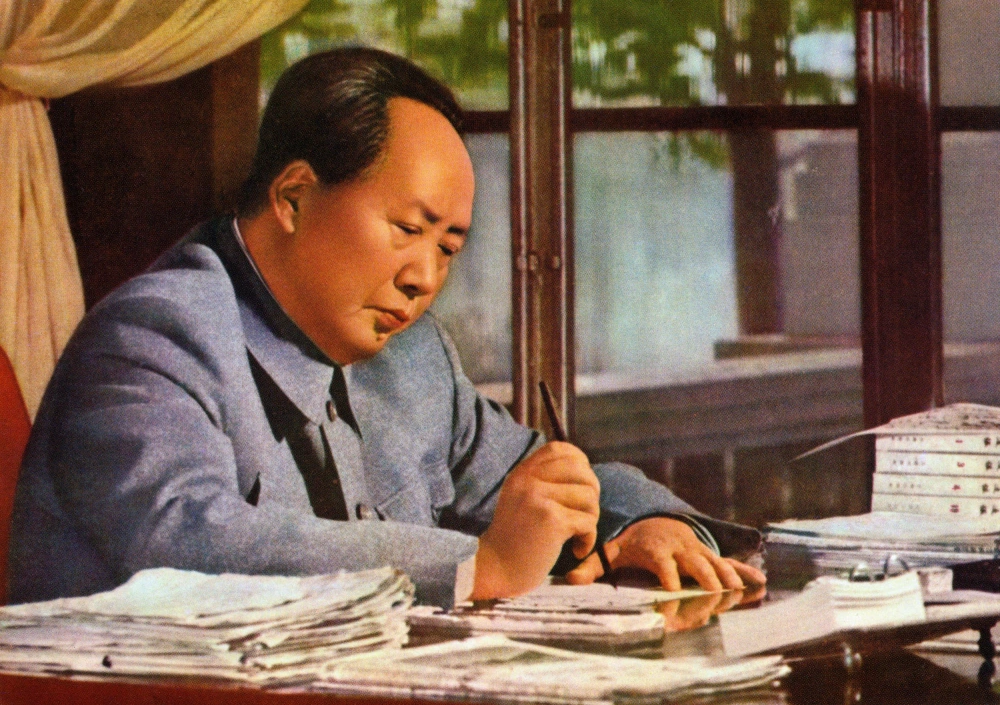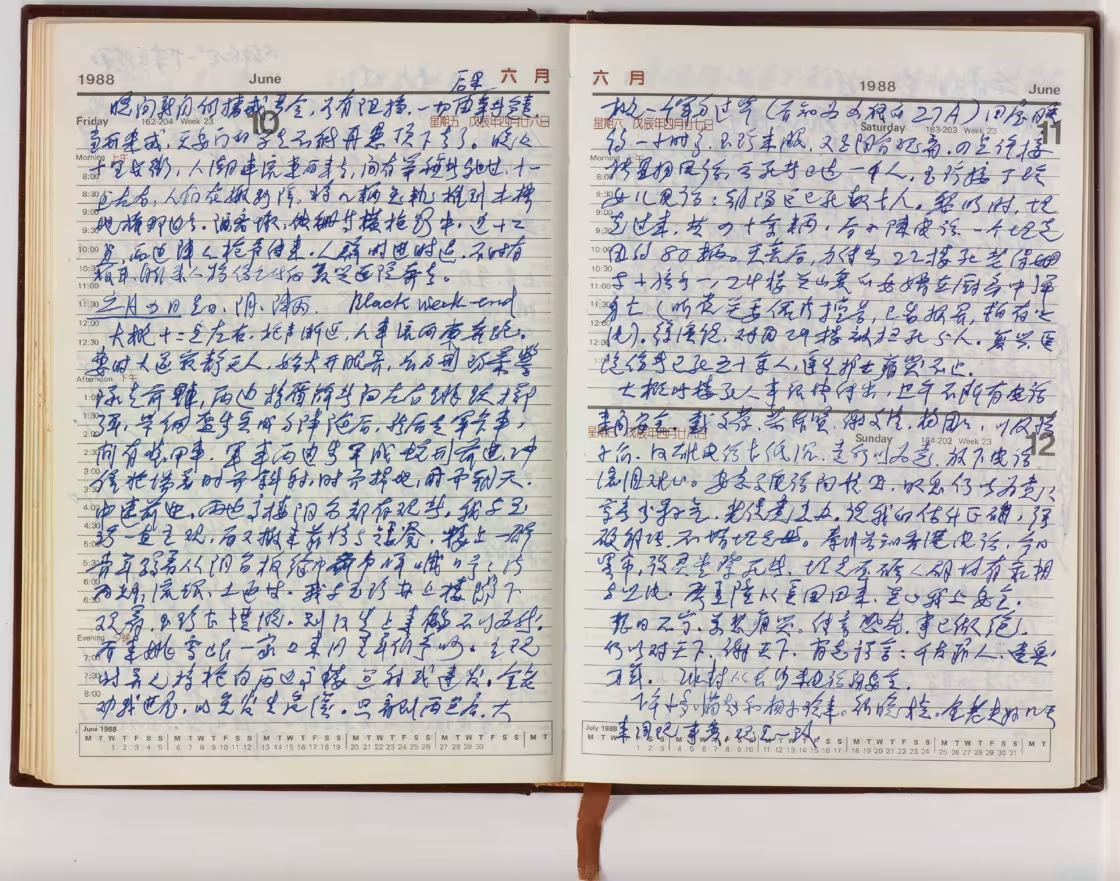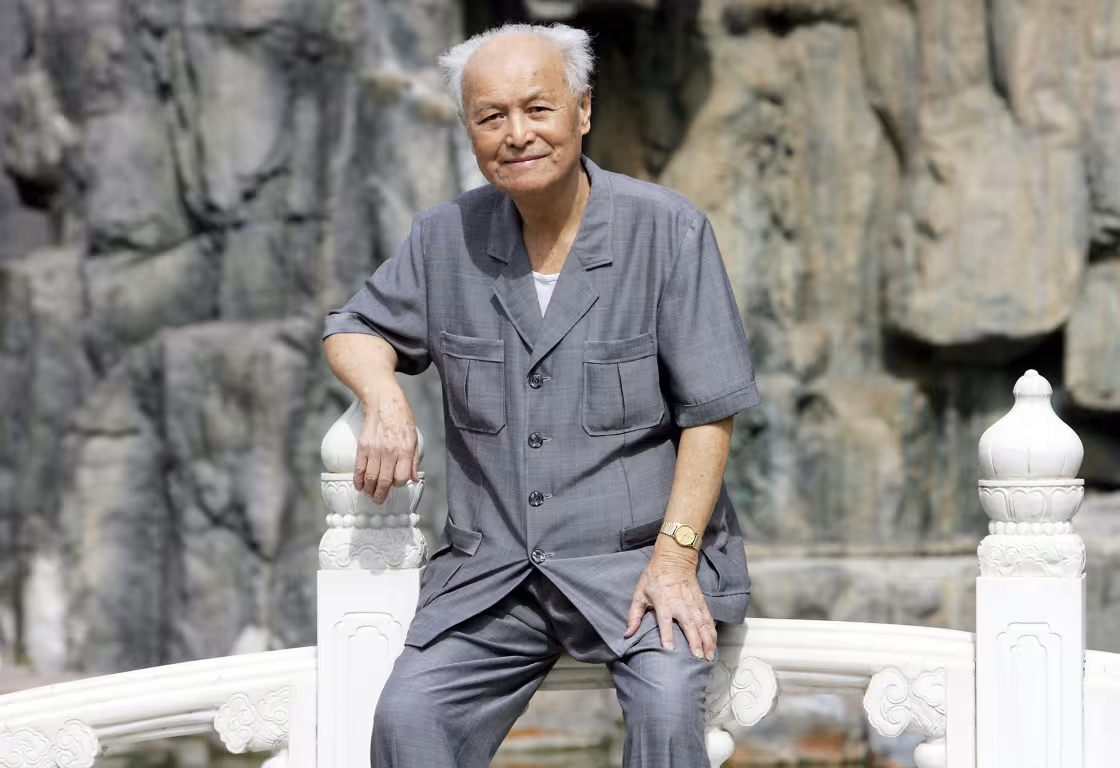Stanford University is suing the widow of top Chinese official Li Rui for ownership of the diaries, which academics fear would be censored by the Chinese Communist Party.

HONG KONG — The diaries of a top Chinese official and prominent critic of Beijing are at the center of a U.S. legal battle, raising questions about who will write the history of modern China.
Li Rui, who died in 2019 at the age of 101, held a number of important positions within the ruling Chinese Communist Party, including personal secretary to longtime leader Mao Zedong. In detailed handwritten diaries he kept from 1946 to 2018, Li recorded his experiences and observations during seven tumultuous decades of Communist Party rule — a version of events that might conflict with the official party line.
As a high-ranking official, Li was an authoritative witness to parts of history that the party would rather not highlight — from internal disputes and policy missteps to the deadly Tiananmen Square crackdown — because they challenge its narrative of uninterrupted prosperity and political unity as China rose from a poor and isolated nation to become the world’s second-largest economy.
A trial that began in California on Monday will decide whether Li’s diaries should remain at Stanford University’s Hoover Institution, where his daughter donated them, or be returned to his elderly widow, who has been accused of acting as a front for Chinese authorities who would most likely censor them.
“We’ve never had something like this before,” said Joseph Torigian, a research fellow at the Hoover Institution.
“These are diaries and personal papers that run to dozens and dozens of boxes that talk about everything from the early years of the revolution to Li Rui’s work as a secretary to very powerful individuals, including Chairman Mao.”
Few top Chinese Communist Party officials have kept such detailed diaries, especially after the Cultural Revolution of the 1960s and 1970s, when they were used as evidence for political persecution.
“It is very hard to study the People’s Republic of China because it is an authoritarian regime that believes that different narratives about its past are very dangerous for regime security, which means that they run a tight ship,” said Torigian, who is also an assistant professor at the School of International Service at American University.

Stanford says Li had directed his daughter, Li Nanyang, to donate the materials to the Hoover Institution, which is known for its large archive of historical materials on modern China, for fear they might otherwise be destroyed by Chinese authorities as part of a crackdown on dissent he saw growing worse under President Xi Jinping.
Li Nanyang, a vocal critic of the Chinese Communist Party who lives in the United States, carried most of the diaries out of China in 2017. She made the donation to the Hoover Institution official days before her father’s death in 2019, once she felt he was safe from possible reprisal.
Shortly after that, Li’s second wife, Zhang Yuzhen, sued for the return of the original diaries, which she says are rightfully hers. Her lawyers argue that they contain deeply personal information about her relationship with Li, and that the violation of her privacy has caused her emotional distress.
A Beijing court found in favor of Zhang, a ruling Stanford says cannot be enforced because it was denied the opportunity to appear in court and defend itself. The university has sued Zhang in California in return.
Lawyers for both sides say their claims are buttressed by comments Li made in his diaries and in interviews about what he wanted to happen to his writings and who should represent him.
But given that Zhang is now in her 90s, questions have been raised about whether the lawsuit was her idea.
“She will not be capable of making money or contributing money for a lawsuit or to pursue the return of the diary,” said Feng Chongyi, an associate professor of China studies at the University of Technology Sydney, who met regularly with Li.
Only the Chinese Communist Party, he said, has “the resources, the money and the political will to do that.”
Zhang’s lawyers have said that she is acting alone. The Chinese Foreign Ministry did not immediately respond to a request for comment on Friday.
Feng and others worry that Chinese authorities would severely restrict access to any diaries by Li, a longtime critic of the party’s leaders and policies, whose writings were banned in China in 2006.
Li joined the Chinese Communist Party in 1937 at the age of 20, rising through the ranks as it defeated the existing government in a civil war to gain power in 1949. By 1958, Li had become Mao’s personal secretary.
But he was expelled from the party the following year over his criticism of the Great Leap Forward, an industrialization program championed by Mao that led an estimated 30 million to 40 million people to die of starvation in three years. During his 20 years in exile, Li was imprisoned in a labor camp and spent eight years in solitary confinement.
He was reinstated to the senior party ranks in 1979, three years after Mao died. In the 1980s, Li worked in the party’s powerful Organization Department, which is responsible for the appointment and promotion of high-ranking officials.
Li was also highly critical of the Chinese government’s deadly crackdown on pro-democracy protests in 1989. From the balcony of his apartment in Beijing, he could see soldiers firing on protesters in and around Tiananmen Square in what he described in English as “Black Weekend.”
His diaries, Torigian said, reveal “his thinking as well as a lot of other very senior revolutionary elders during that crisis,” public discussion of which is suppressed in China.

In his later years, Li was a leader of a group of pro-reform elder intellectuals in Beijing, “and there are details about his interactions with that circle as well,” Torigian said.
“So the breadth and the detail are really something that are quite unprecedented for the study of politics and the Chinese Communist Party,” he said.
Though the Hoover Institution has scanned copies of the diaries, archivists and historians say it’s important to retain the original materials as well, both for research purposes and to reinforce the authenticity of the scans.
“The Communist Party of China has a history of altering materials in order to fit what it wants the version of history to be,” said Perry Link, a Sinologist and emeritus professor of East Asian studies at Princeton who testified at the trial last week.
If scholars publish research based on the Hoover copies but the originals are in Beijing, “the government in China can say, ‘No, your conclusions are wrong, you worked from the wrong materials. We have the originals, and that’s not what they say,’” said Link, who is also a professor at the University of California, Riverside.
With the originals in their possession, party elites could release them selectively to support their preferred narratives “and might even change what’s in the diaries,” he said. “They’ve done this before.”


i was excited (for more primary sources until i read
until i read
He's not even there for the most interesting (and most in need of good contemporary primary sources!!!!!! Everyone and their mother has written about the civil war!!!!!!!!!!!!!!!!!!!!!!!!) period who cares about this guy